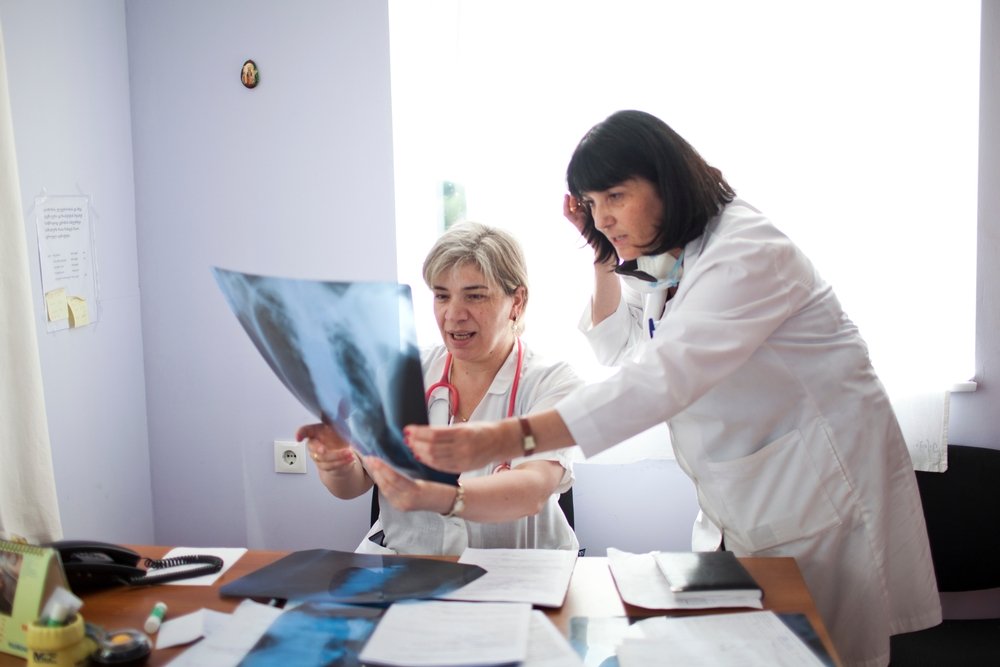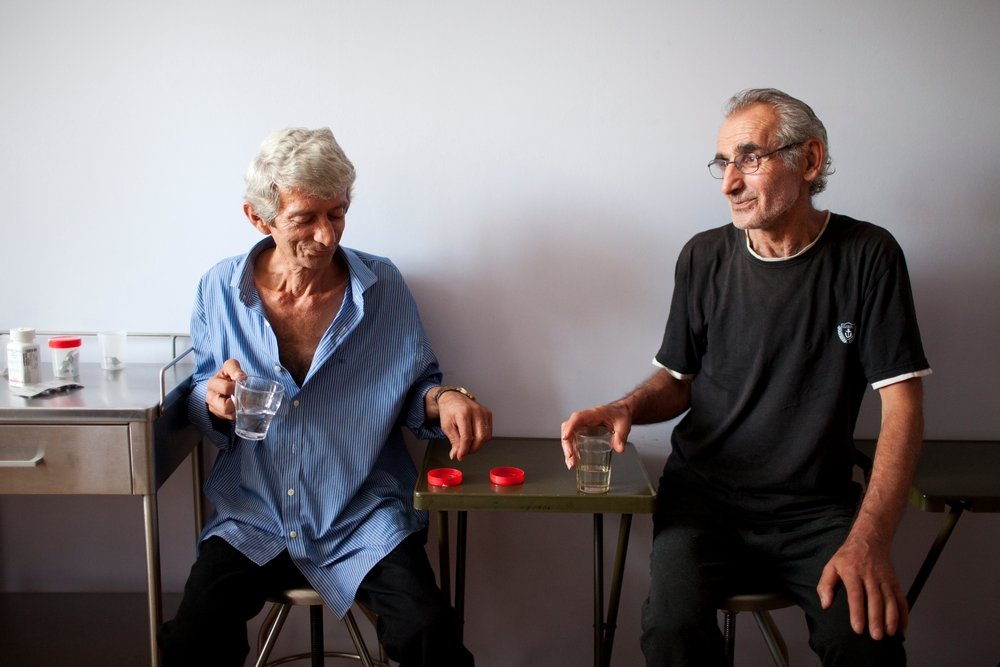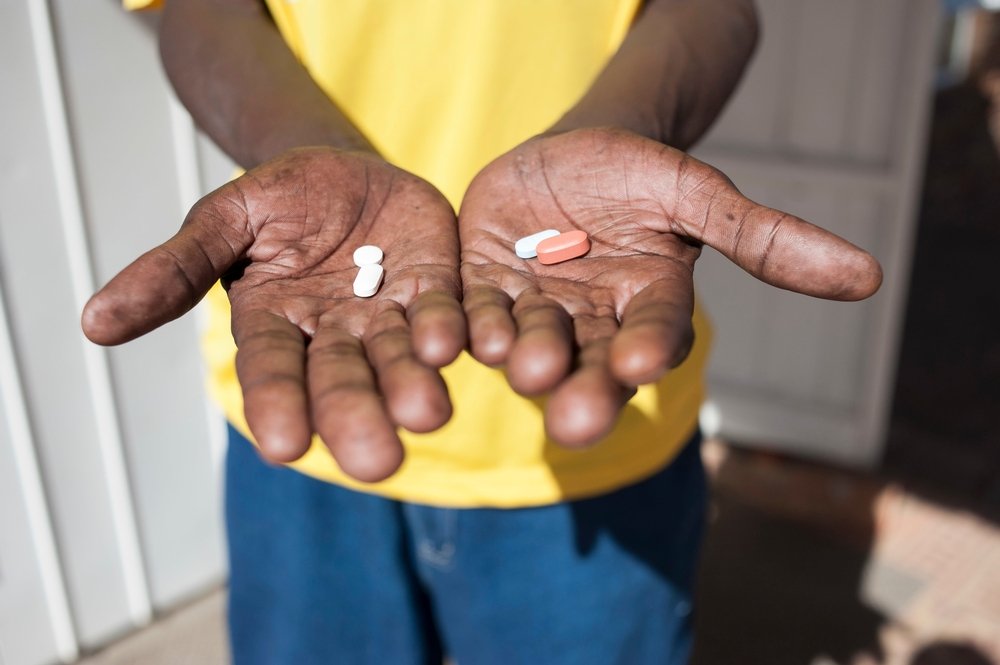
Cape Town — Nearly three years since the first of two new tuberculosis (TB) medicines became available, the drugs remain out of reach for people who need them, with just two percent of people eligible for these treatments actually receiving them.
The drugs bedaquiline, produced by Johnson & Johnson (Janssen) and delamanid, produced by Otsuka, are the first new TB treatments to become available in half a century, and offer hope for people with drug-resistant forms of TB. Doctors Without Borders (MSF) called on the two companies to ensure faster global access to these drugs by registering and making their products available in affected countries and offering affordable prices to low- and middle-income countries.
Read the briefing document "Out of Time: Access to Treatment for DR-TB
Tuberculosis is a curable disease that continues to kill around 1.5 million people per year, with new cases of drug-resistant forms affecting nearly half a million people annually. According to World Health Organization, barely a quarter of people thought to have multidrug-resistant (MDR-TB) were put on treatment in 2014, with only about half of those successfully completing treatment.
For people with an even more severe form of the disease, extensively drug-resistant TB (XDR–TB), the treatment success rate drops to just one in four.

“It’s beyond infuriating to know that there are medicines out there that could offer hope to people who have exhausted all other treatment options, but that so few people have access to them,” said Dr. Grania Brigden, MSF Access Campaign TB Advisor. “What’s the point of a new potentially life-saving treatment if the people who need it the most cannot access it?”
Data from MSF projects and elsewhere show improved responses in treatment using the drug bedaquiline with culture conversion rates of 84%, 97%, 75% and 77% after six months of treatment in XDR-TB patients in Armenia, France, Russian Federation (Chechnya) and South Africa respectively.
Access to bedaquiline and delamanid is severely limited. Less than 3000 people have received bedaquiline as of November 2015.
Only about 100 people have received delamanid through compassionate use programmes. These numbers are pathetic considering there are an estimated 48,000 people with XDR-TB globally and at least twice as many with pre-XDR-TB and MDR-TB who would meet WHO criteria for the new drugs.
One major barrier to accessing these drugs is the fact that they remain registered in only a limited number of countries, with bedaquiline registered in just seven of the world’s 27 high MDR-TB burden countries, and delamanid registered in just four countries, none of which has a high MDR-TB burden (Japan, Germany, the UK and South Korea). Delamanid has not been registered in any of the countries where the clinical trials took place.

The companies that produce the two drugs have set up limited donation programmes, but the cap on the number of treatment courses is far below the need, and certain high-burden countries are completely excluded. South Africa, for example, is not eligible for the bedaquiline donation, and there is a quota on how many countries in Central Asia can receive the donation.
Rollout has also been slow, with Georgia, the first recipient of the bedaquiline donation, starting to receive treatments a full ten months after the donation programme was first announced. Otsuka announced its own donation programme in April, committing to provide delamanid to 20 percent of people diagnosed with MDR-TB by 2020, however no further information has been provided by the company since it was announced.
These donation programmes not only fail to meet the needs of patients today, but also serve to obscure the need for these drugs to be priced affordably for all developing countries, so that governments and treatment providers can procure adequate quantities to meet patient needs on a sustainable, long-term basis.
Another barrier is the high price set in countries where on-going donation programmes do not apply. The new drugs are being added to a treatment regimen that already costs between US$1,800 to $5,000 per treatment course. Bedaquiline has a tiered pricing structure ranging from $900 - $30,000 for a six month treatment and a six month course of delamanid currently sells for $33,600 in Japan.
A recent study by researchers at Liverpool University showed future regimens containing bedaquiline or delamanid could be priced at less than $500 per treatment course.
“With two new TB drugs now available and increasing evidence of their potential value in treating MDR-TB, clinicians must have access to the full toolbox of potentially effective drugs, so they can create individualised regimens that offer DR-TB patients the best possible chance to survive,” said Dr. Brigden. “J&J and Otsuka need to commit to making their drugs available its medicines in all affected countries as soon as possible and provide affordable prices; no regimen should cost more than $500 per person, including with the use of these drugs.”
Editor’s notes:
The two new drugs were conditionally approved based on their phase IIb clinical data, although completion and publication of phase III data is still critically important. Delamanid’s phase III clinical trial completed enrolment in November 2013, with results expected in 2017. Bedaquiline’s phase III clinical trial, which expands on the existing STREAM trial looking at efficacy of shorter treatment regimens, has yet to commence.
Compassionate use is an early access mechanism which allows patients suffering from life-threatening diseases without any other treatment options to access a medicine before its clinical and regulatory approvals are finalized. Compassionate use programmes are only available to people living in countries with the necessary legal framework in place. Ultimately, however, compassionate use programmes are controlled at the discretion of pharmaceutical firms.
Janssen has run a compassionate use programme for bedaquiline since 2011, but it is currently being phased out; Otsuka has run a compassionate use programme for delamanid since 2014.
Doctors Without Borders (MSF) has been providing TB care to patients across the world for over three decades, often working alongside national health authorities to treat patients in a wide variety of settings, including conflict zones, urban slums, prisons, refugee camps, and rural areas. MSF’s first programmes to treat drug-resistant TB (DR-TB) opened in 1999, and the organisation is now one of the largest non-governmental providers of DR-TB care in the world. In 2014, MSF provided TB treatment in over two dozen countries to 21,500 patients, including 1,800 treated for DR-TB.